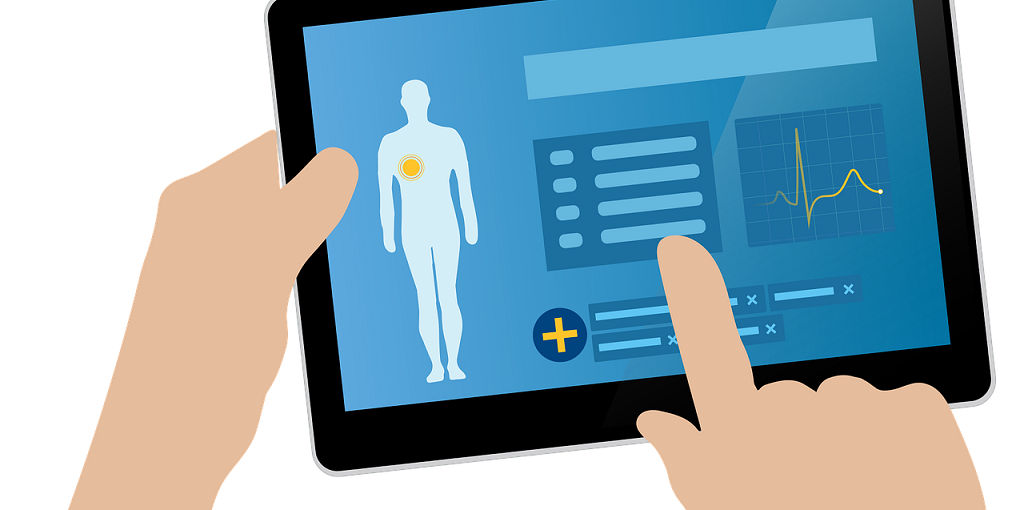
The COVID-19 pandemic has had an important impact on the development and adoption of digital technologies for remote health care. Many of these digital health technologies are here to stay, as they greatly benefit care, but also research settings. This is especially true for people living with MND, since travelling, communication and visits to specialist clinics become increasingly burdensome throughout their disease course. Last month, a road map was published to facilitate the wide-scale implementation of digital health care technology for MND.
A road map for digital technologies
While the need for e-health solutions in MND care and research was evident long before the pandemic, several key barriers delay their adoption and wide-scale use. These include technical difficulties, low compliance rates, costs, and legislation issues. For clinical trials, regulatory hurdles further complicate things such as lower data quality and a lack of translation to clinically or patient-relevant outcomes. Therefore, researchers, including various scientists from TRICALS sites, have now proposed a road map to:
- Define a set of reliable digital parameters for clinical decision making
- Build an integrated open-source system that provides personalized feedback to patients, health care providers, clinical researchers and caregivers
Importantly, digital parameters should be collected under ‘free-living conditions’, at the patient’s home. The authors of the road map state that there is a need for input from all stakeholders, such as patients, caregivers, clinicians, engineers and technology companies. In order to achieve these aims, the authors outline the required research efforts to address the following key questions:
What to measure?
Remote measurements should focus on how aspects of MND affect daily life. A distinction should be made between symptoms of MND and disabilities caused by MND. In this way, data important to enable clinical decision making should be maximised, while minimising any redundant information. To determine what needs to measured, the authors suggest several parallel approaches:
- Review of the scientific literature
- Interviews
- Focus groups
- Population-based patient surveys
How to measure?
Once it has been established what needs to be measured, it needs to be decided how this is going to be measured. In other words, which technologies are deemed fit to remotely measure all relevant aspects of MND. This question will be addressed by identifying candidate technologies in the scientific literature. These will then be evaluated in long term studies to assess their reliability and validity. In these studies, the practicality of each protocol should also be assessed. For instance, it may not be realistic to expect patients to perform a muscle strength test every day.
How to implement?
All digital data obtained from a range of different apps and devices need to be integrated into a central platform. This platform will then be used to provide personalised information to guide care and research decisions. The value of this database will become clear by trialling it in the real world.
TRICALS considers it one of its priorities to improve the use of remote digital measurements in clinical trials and to come up with a technical and secure solution for this database. Digital health technology allows more frequent and real-time follow-up of participants. In addition, innovative apps and sensors could provide novel data to refine the assessment of drug efficacy.
Scientific Publication:
van Eijk, R.P.A., Beelen, A., Kruitwagen, E.T. et al. A Road Map for Remote Digital Health Technology for Motor Neuron Disease. J Med Internet Res (2021). https://www.jmir.org/2021/9/e28766/
Noticias relacionadas

Lighthouse II study finished recruitment phase with more than 400 participants

Your expert opinion wanted on ALS clinical trials

European Commission approves Tofersen as treatment for ALS-SOD1
